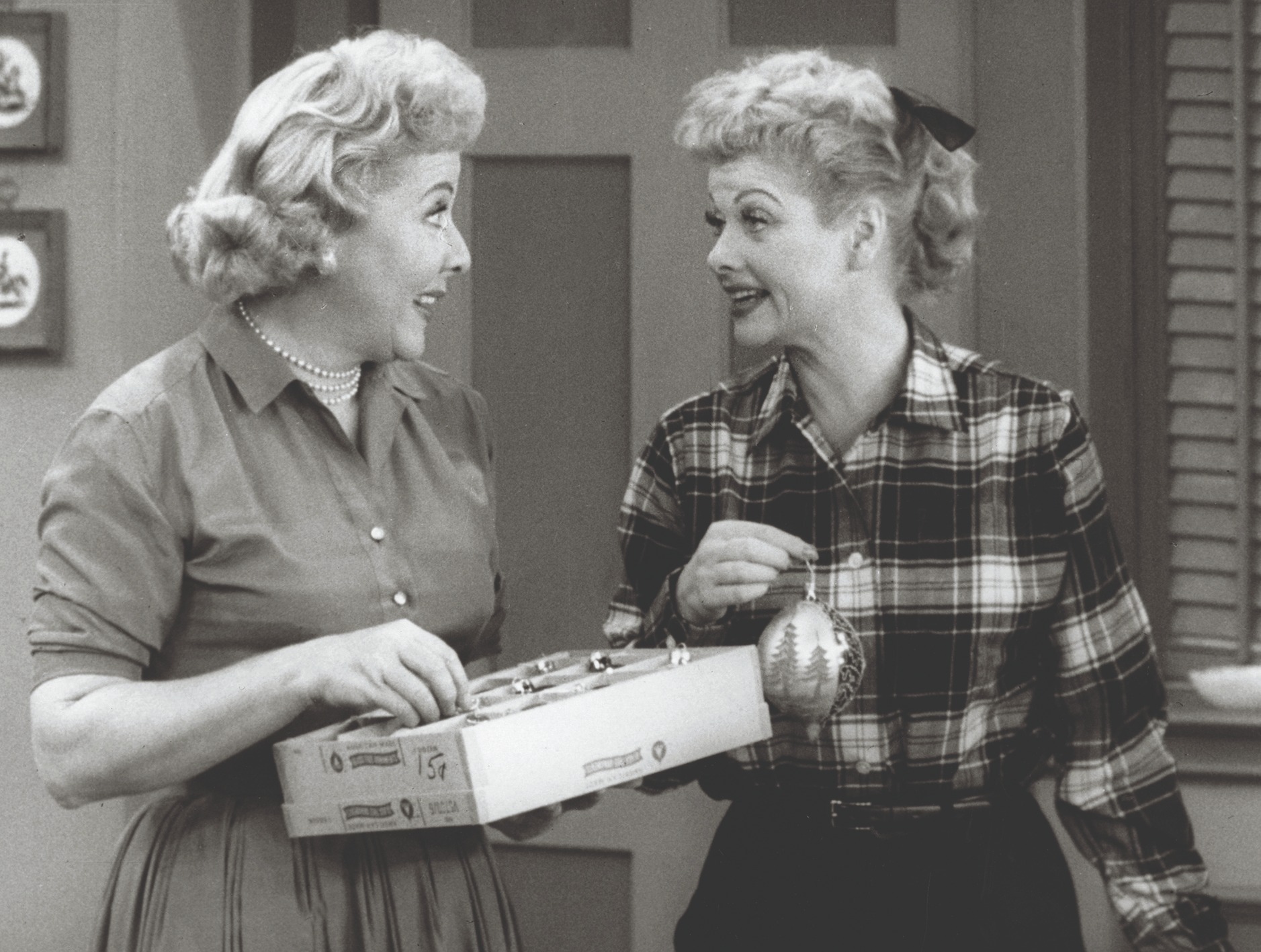
Deborah Vance and Ava Daniels shouldn’t be friends. Deborah is an extremely wealthy, if slightly washed up, comedian – the veteran of a thousand nights delivering self-deprecating gags on sticky comedy club stages and a lucrative, endless Las Vegas residency. Ava, meanwhile, is a young comedy writer with a preference for androgynous clothing who can’t earn any money after a tweet gets her blackballed by every single Hollywood writers’ room. Reluctantly, she moves out to Las Vegas to help Deborah punch up her material. And, because these are the principal characters of the comedy series Hacks, chaos naturally ensues.
They appear to hate each other, passionately. Deborah (played by Jean Smart) accidentally-on-purpose strands Ava (Hannah Einbinder) in the desert with a broken-down car. Ava bad-mouths Deborah while catastrophically partying with a total stranger to escape the stagnation of her solo Vegas hotel room. They feud with antiques dealers, hotel owners, water inspectors, nurses, their own family members. But through it all, despite their yelling and their protests, there is this strange chemistry between them. It’s nothing romantic, but rather something even more intimate. For every time that they row and vow never to speak again, their lives keep intersecting anyway, as if each can’t bear to let the other have the last word on their relationship. Some inescapable force pulls them towards each other, a deep compatibility that belies their superficial differences. They are, in the most fundamental way, a good fit.
The “odd couple”, which Deborah and Ava most certainly are, is a television trope with a rich history. Hacks, which debuted in 2021, is returning with its third series in May, but this sublime push-pull dynamic has been lighting up our screens for decades. I Love Lucy, which premiered in 1951, contains a wonderful example in the form of the antagonistic comic friendship between protagonist Lucy Ricardo and her landlady-slash-friend Ethel Mertz.
Although the creators clearly wanted a two-hander between Lucy (portrayed by Lucille Ball) and her husband Ricky Ricardo (played by Ball’s real-life husband Desi Arnaz), it was Lucy’s scenes with Ethel (Vivian Vance) that stole the show for me. On paper, they are not compatible. Lucy is a would-be actress desperate to break into showbusiness, while Ethel has a lovely singing voice but is nevertheless content with her existence as a homemaker and landlady. Lucy is a dreamer and a schemer, while Ethel is a cautious realist who is easily frustrated by her tenant’s madcap plans to make herself a star. And yet, over the show’s six seasons, they form a heart-warming bond.
The two have a wonderfully rhythmic patter that underscores their connection via sarcastic one-liners. Upon learning that Lucy is dipping her toe into literary work by “writing about the things she knows”, Ethel immediately hits back: “That won’t be a novel, that will be a short story!” As with Deborah and Ava, it soon becomes clear that being mean to each other is their way of expressing affection.
This idea of a strange but complementary duo was cemented in the 1960s in a play by the screenwriter and dramatist Neil Simon, The Odd Couple. It premiered on Broadway in 1965 with Walter Matthau and Art Carney as Oscar and Felix, two newly divorced men who move into a New York flat together. Oscar is an easygoing slob, while Felix is a hypochondriac neatfreak who finds his new roommate’s habit of leaving dirty dishes and clothes everywhere an unbearable psychic burden. The two niggle and pick at each other until Oscar throws Felix out – only for both to realise that they had more of a positive influence on each other than they thought.
The Odd Couple had a long and influential life beyond the stage. In 1968 Matthau reprised his role opposite Jack Lemmon for the film version, and then in 1970 it became a television sitcom starring Tony Randall and Jack Klugman. Most interestingly, Simon returned to the story in the following decade and flipped the gender of the characters: Felix became Florence; Oscar became Olive. The female version of The Odd Couple hit Broadway in 1985, with Sally Struthers and Rita Moreno as the leads.
This new version of the play was a hit, running for almost 300 performances, but sadly failed to spawn the equivalent TV adaptation. Still, having women take over the principal parts was both refreshing and a sign of how adaptable the odd couple trope can be. Almost two decades after Simon’s original play, he was able to update it to take in societal changes that made it plausible, funny even, for two divorced women to share a New York City apartment and rile each other up as they live their newly independent lives.
Since Struthers and Moreno took Broadway by storm, it has become more common than not to find women rather than men in these oddball duos on screen. The trend is everywhere you look, once you start paying attention: shows as different as Grey’s Anatomy (longrunning medical procedural), Crazy Ex-Girlfriend (musical romance) and Fleabag (surreal comedy) all feature examples of these opposites-attract close-knit female duos.
An outstanding recent example can be found in Dead to Me, a dark comedy series from Netflix that debuted in 2019. Christina Applegate stars as Jen, a devastated widow who lost her husband in a hit-and-run accident. At a support group meeting she meets Judy, played by Linda Cardellini, who is there to talk about her fiancé – he recently died of a heart attack, she says. The two have completely opposite ways of handling their bereavements: Jen is grimly uptight and occasionally lets loose through rage, while Judy is relentlessly New Age and upbeat. Somehow, though, they come to form a deep connection that endures through the show’s descent into crime and complication.
Grace and Frankie is an interesting example showing women later in life. Jane Fonda and Lily Tomlin – who were both in their late 70s when the first series premiered in 2015 – star as the titular characters who are thrown together when their husbands announce they are leaving their wives for each other. Grace is sharp and blunt, having little patience with Frankie, a creative hippie type whose trusting ways often get her into scrapes.
After years of sniping at each other and begrudging support, there is a scene where the two finally air their issues. “It’s like I’m just some annoyance you’re forced to put up with,” Frankie says, sounding hurt. “Like it or not, though, you’re my friend.” “I like it,” Fonda’s character snaps back, tears welling up in her eyes. And then they go right back to insulting each other. It’s a rare moment of vulnerability, but all the more moving for it.
Fonda and Tomlin’s odd couple dynamic continues offscreen too. The actors have been close for decades and their publicity interviews for Grace and Frankie were full of good-natured sniping and barbs, as well as stories about their antics getting arrested together during climate change protests. Their chemistry as friends, though, is undeniable. And ultimately, that is where the appeal of the female odd couple lies.
There is something radical – still – about stories that don’t rely on the unfolding of a conventional man-woman romantic relationship to drive a plot. As Alison Bechdel highlighted with her now famous “Bechdel Test”, it’s notable when two female characters get to have a conversation about something other than a man. Nuanced female relationships may be less hard to find onscreen than in 1985, when the test was first mooted. But shows like Hacks, which depict two women endlessly free to love and despise each other in equal measure, still feel special.
This article is from New Humanist’s summer 2024 issue. Subscribe now.

